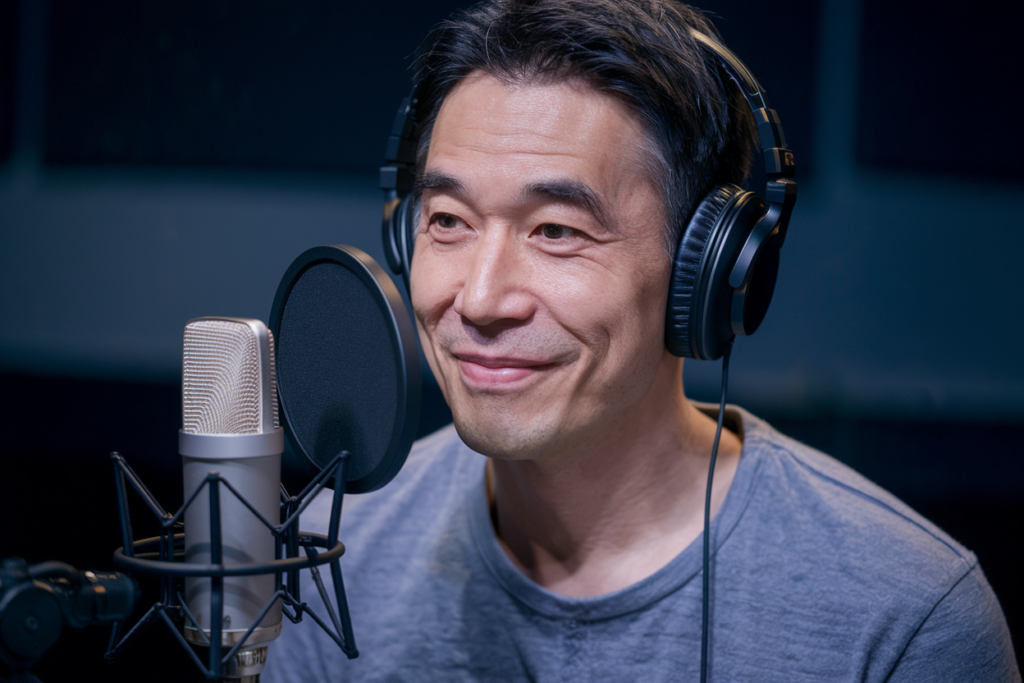Key Takeaways
- Role of Japanese Dubbing: Essential for enhancing emotional delivery and cultural nuances in anime, movies, and video games.
- Cultural Context Importance: Skilled voice actors adapt dialogues to fit cultural references, enriching storytelling and viewer connections.
- Audience Engagement: Quality voiceovers elevate character relatability, making narratives more engaging and memorable for audiences.
- Dubbing Scenarios: Crucial in animated content, live-action films, and video games to ensure immersive experiences without reliance on subtitles.
- Challenges Faced: Voice actors must navigate language nuances and maintain high-quality performances to effectively communicate emotions.
Ever wondered where Japanese dubbing is required? If you’re a fan of anime, movies, or video games, understanding the role of dubbing can enhance your viewing experience. It’s not just about translating words; it’s about capturing emotions and cultural nuances that make the story come alive.
Overview of Japanese Dubbing
Japanese dubbing plays a crucial role in delivering content that resonates with audiences. When you consider anime, movies, and video games, it’s not just about translating words; it’s about capturing emotions and cultural nuances. The right voice actor can breathe life into characters, enhancing the storytelling experience.
In Japan, voiceover talent invests significant time in developing unique character voices. This commitment enhances the connection between viewers and the narrative. You’ll find that skilled voice artists are adept at conveying a range of emotions—from joy to sorrow—making each scene compelling.
Furthermore, dubbing ensures accessibility for those who might struggle with reading subtitles. By employing talented voice actors, productions reach broader audiences while maintaining engagement. It’s fascinating how a well-executed dub can make viewers feel as if they’re experiencing the story firsthand.
Japanese dubbing is essential for creating immersive experiences across various media formats. The impact of quality voiceovers cannot be overstated; they elevate content by fostering deeper emotional connections with your audience.
Importance of Japanese Dubbing
Japanese dubbing significantly enhances the viewing experience for audiences, especially in anime, movies, and video games. It captures emotions and cultural nuances that can transform a good story into an unforgettable one.
Cultural Context
Cultural context plays a vital role in effective Japanese dubbing. Skilled voice actors understand the intricacies of language and culture, ensuring that emotions resonate with viewers. They adapt dialogues to fit cultural references while maintaining the original essence of the narrative. This depth enriches storytelling, allowing audiences to connect with characters on a profound level.
Audience Engagement
Audience engagement thrives through quality voiceovers. A compelling performance by a talented voice artist brings characters to life, making scenes more relatable and impactful. When viewers relate emotionally to characters through their voices, they become invested in the story. Engaging performances elevate not only enjoyment but also retention; people are more likely to remember content that resonates deeply with them.
Japanese dubbing is essential for delivering an immersive experience that captivates audiences by intertwining cultural relevance with emotional engagement.
Scenarios Where Japanese Dubbing is Required
Japanese dubbing plays a vital role across various media formats, enhancing the viewer’s experience and ensuring content resonates with the audience. Here are key scenarios where dubbing becomes essential.
Animated Content
In animated films and series, voice actors breathe life into characters. Dubbing ensures that the emotional delivery matches the visuals perfectly. Without proper voiceovers, humor or drama can fall flat, losing its impact. Skilled voice talent adapts dialogue to fit lip movements while capturing cultural nuances that engage viewers deeply. This connection fosters a loyal fanbase eager for authentic representations of beloved characters.
Live-Action Films
For live-action films, dubbing offers accessibility to broader audiences who prefer their content in Japanese without reading subtitles. Quality voiceovers allow viewers to immerse themselves fully in the story without distractions from reading text on screen. Voice artists use their talents to convey complex emotions through spoken language, making characters relatable and enhancing overall enjoyment of the cinematic experience.
Video Games
In video games, Japanese dubbing enhances player immersion by creating an authentic atmosphere aligned with gameplay mechanics. Players often seek narratives that draw them into different worlds; thus, skilled voice actors deliver performances that elevate storytelling within games. Engaging voiceover work helps players connect emotionally with characters while navigating challenges and plots throughout their adventures.
By understanding these scenarios where Japanese dubbing is required, you appreciate how crucial it is for delivering impactful experiences across various forms of media.
Challenges in Japanese Dubbing
Japanese dubbing presents unique challenges that require careful consideration to ensure effective communication and engagement.
Language Nuances
Language nuances play a critical role in the success of Japanese dubbing. Each phrase or expression carries cultural significance, making it essential for voice actors to grasp these subtleties. When translating dialogue, it’s not just about changing words from one language to another; it’s about conveying feelings, idioms, and context-specific meanings. Voice actors must adapt scripts creatively while maintaining the original tone and intent. This often involves rephrasing lines or altering delivery styles to better fit Japanese linguistic structures.
Voice Acting Quality
Voice acting quality directly impacts the audience’s connection with characters. Skilled voice artists bring scripts to life through their performances, infusing emotions into each line they deliver. A talented voice actor can convey joy, sadness, anger, or humor with remarkable precision, ensuring viewers feel every moment of character development. High-quality voiceovers help maintain immersion by matching emotional intensity with visual cues on screen. When audiences resonate with the performance of a voice over talent, they engage more deeply with the narrative and characters.
Navigating language nuances and ensuring top-notch voice acting quality are crucial elements in overcoming challenges associated with Japanese dubbing. These factors enhance viewer satisfaction by creating authentic experiences that reflect cultural depth and emotional resonance.
Conclusion
Japanese dubbing elevates the experience of engaging with anime movies and video games. By capturing emotions and cultural nuances it fosters a deeper connection to the story and characters. Whether you’re watching animated content or diving into a live-action film each voiceover enriches your understanding while making the narrative more relatable.
With skilled voice actors bringing characters to life you’ll find yourself immersed in a world that resonates on an emotional level. Dubbing not only enhances accessibility but also ensures that every moment feels authentic. Ultimately investing in quality Japanese dubbing leads to richer storytelling experiences allowing you to appreciate the depth of each narrative fully.
Frequently Asked Questions
What is Japanese dubbing?
Japanese dubbing refers to the process of replacing the original audio of anime, movies, or video games with Japanese voice performances. This practice enhances emotional delivery and cultural relevance, making content more engaging for Japanese audiences.
Why is dubbing important in anime?
Dubbing in anime is crucial because it captures emotional nuances and cultural references that subtitles might miss. Skilled voice actors bring characters to life, allowing viewers to connect more deeply with the story and its emotions.
How does Japanese dubbing enhance audience experience?
Japanese dubbing enriches audience experience by providing relatable character voices that convey emotions effectively. It makes stories accessible to those who struggle with subtitles and helps create a more immersive viewing or gaming experience.
What challenges do voice actors face in Japanese dubbing?
Voice actors face challenges like adapting language nuances while preserving the original intent of dialogues. They must balance creativity with authenticity, ensuring that their performances resonate emotionally with audiences.
In what scenarios is Japanese dubbing essential?
Japanese dubbing is essential in animated films, live-action movies, and video games. It enhances character portrayal, improves accessibility for non-subtitle readers, and creates an authentic atmosphere that aligns well with gameplay mechanics.
How does quality impact Japanese dubbing?
Quality significantly impacts Japanese dubbing as skilled voice artists infuse their performances with emotion. High-quality voice acting ensures that viewers feel every moment of character development, fostering deeper emotional connections to the narrative.







